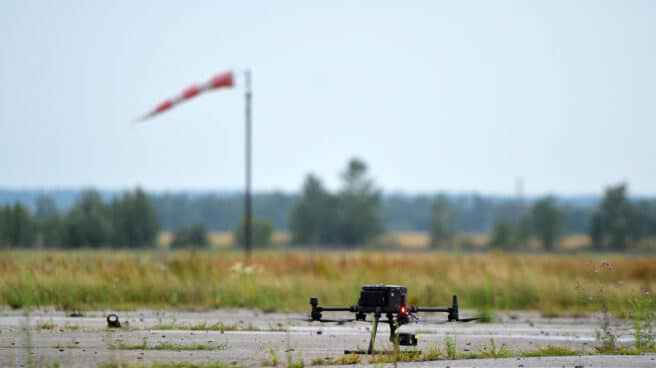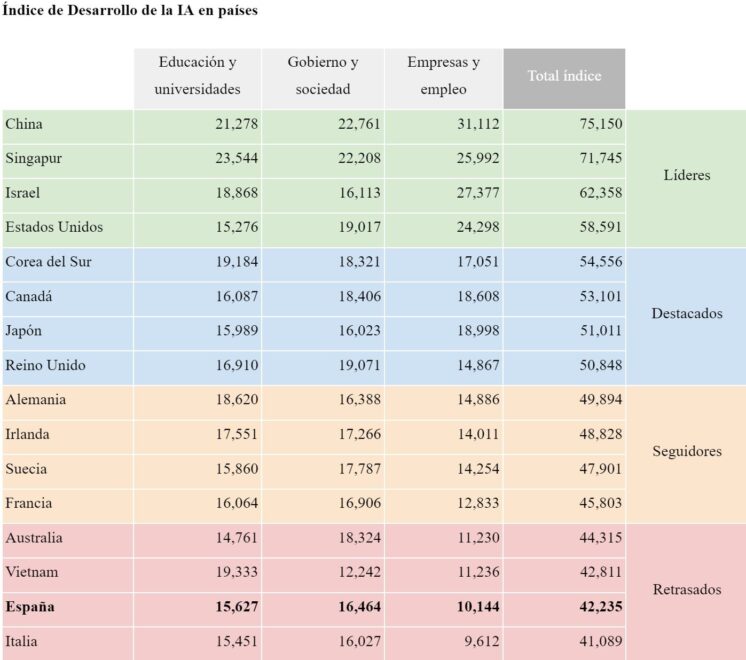

UAV of the Ukrainian armed forces
In just a few years Artificial intelligence, in its current state of development, has demonstrated its capabilities and impact on our economy and many manufacturing sectors. Increasingly, it is acting as a key factor in increasing the competitiveness of many companies by automating their processes, increasing sales, or customizing products and services. In just a few years, we’ve gone from mentioning media use cases (“AI beats us at chess or go”) to how it’s being firmly embedded in our companies and our lives.
The leadership and economic and military hegemony of countries – mainly between China and the United States – is established by exploiting the potential of AI. The war between Ukraine and Russia itself – and its unexpected development – in some ways reveals the role that AI can play in strategic decision making, data processing and research, target recognition, etc. Drones and AI can be combined to perform several functions, such as like monitoring areas, identifying risks and communicating threat information to the appropriate response teams.
There is no doubt that artificial intelligence is a technology that will allow us to solve almost all of humanity’s major problems.
The Congress on Artificial Intelligence in Alicante, organized by El Independiente in its fifth edition, is dedicated to an extremely relevant topic in the current international situation: energy. AI can create a level of intelligent coordination in the production, transmission and use of energy. In this way, technologies can help stakeholders discover patterns and insights in data, learn from experience and improve system performance, and predict and model the likely outcomes of complex situations. AI is already being used to optimize energy networks by managing energy flows between homes, businesses, batteries, renewables, microgrids, and the grid itself. This reduces energy losses and can optimize consumption.
In addition to being crucial in military and energy matters, there is little doubt that AI is a technology that will solve almost all important tasks of mankind (preservation of the planet, the environment, complex diseases, space exploration …). Despite this, significant gaps still exist between countries and territories. The US and China (along with some smaller countries) are leading the way in AI development, while the European Union is following its traditional path of technological dependency. A Europe without ambitious policies, comparatively comparable to China or the US, is doomed to a dangerous economic, military and technological dependency. Our regulatory, ethical or risk-based strategy will be a dead letter in a situation of economic and military weakness.
The Spanish and European strategy of “digital transformation” that we commendably shout about is largely based on the import of technologies developed by third countries. We do not have relevant specialized companies that compete internationally with the big ones. With the existing ones, we find ourselves in an environment characterized by a fragmented market and mistrust, generated by huge restrictions on data, the main raw material for AI. Similarly, EU states are unaware of the shortcomings of European AI startups. Even today, their products and solutions are ignored in tenders and purchases by the administrations themselves, whose tenders require guarantees to match those of already consolidated technology companies.
The photo of Europe and Spain, included in the AI Development Index by Countries, prepared by the Research Group “Economics of Innovation and Artificial Intelligence” of the University of Alicante, leaves no room for doubt. Europe is closer to the laggards than to the leaders.

Some individual success stories fuel unwarranted conformity and even optimism. It has been two years since the publication of our book Europe vs. the US and China. Preventing the End of the Age of AI. often continues to be among Amazon’s bestsellers. But the recommended and necessary policy for a corresponding change in direction is still conspicuous by its absence.
Source: El Independiente